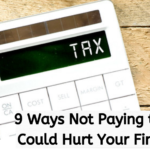Watch my interview with DeleteMe – and get your personal info REMOVED from public databases!
 How to Protect Your Personal Information Online
How to Protect Your Personal Information Online
These days, our whole lives seem to be online. From online banking to social media to online shopping, we have a lot of accounts, and each of these accounts contains personal information. It can be easy to lose track of what information is out there on your various accounts but you can keep your personal information private by following a few simple guidelines.
Here’s how to protect your personal information online:
1. Make social media profiles private.
Some social media profiles have sensitive information displayed, such as your birth date. To ensure this information stays safe, edit the settings on all social media profiles to the highest privacy setting so only your approved friends and followers can see it.
Make sure that all of your followers and friends on social media are trustworthy people that you actually know. You should also be careful about what you post on your profiles, even if your followers all seem trustworthy.
2. Be careful with public wifi.
While public wifi is convenient, it’s not always secure. If you’re using public wifi, make sure that you’re not logging into any sensitive accounts or giving out any sensitive information. Also, make sure that the wifi is coming from a trusted source.
3. Protect your mobile devices.
Your laptop, phone, and tablet all may have sensitive personal information stored on them. Lock your devices as often as possible, and make sure they’re password protected. This way, if your mobile devices get stolen, thieves still can’t easily access your information.
4. Close old accounts.
Keep track of all your online accounts and close the ones you’re not using anymore. Even if the account seems trivial, it still might have some of your personal information stored on it. If an account of yours is dormant, you may not notice right away if it’s been compromised, which can make it harder to fix the breach.
5. Use a password manager.
It’s a good idea to vary your passwords across all of your online accounts. However, many people find it hard to remember all those different passwords. A digital password manager remembers all the login information for all of your online accounts. This way, you can have secure accounts while still being able to remember all of your passwords.
6. Sign up for a privacy protection service.
Even when you’re really careful with all of your online accounts, it’s still possible for some of your personal information to be compromised without your knowledge. Privacy protection services like DeleteMe scour the web to find all of your compromised information. Once they find it, they work to delete it so you can get your privacy back.
7. Use tricky answers to security questions.
Security questions are meant to protect your online accounts, but the answers to those questions are often relatively easy to find with some research. Instead of answering the questions directly, do so in a roundabout way.
For instance, if the security question asks the name of your childhood dog, don’t use the dog’s real name as it appeared on vet records and registration. Instead, use a nickname you had for the dog that you only used around the house. This makes it nearly impossible for a thief to find that information.
This post may contain affiliate links or links to sponsors of SavingsAngel.




